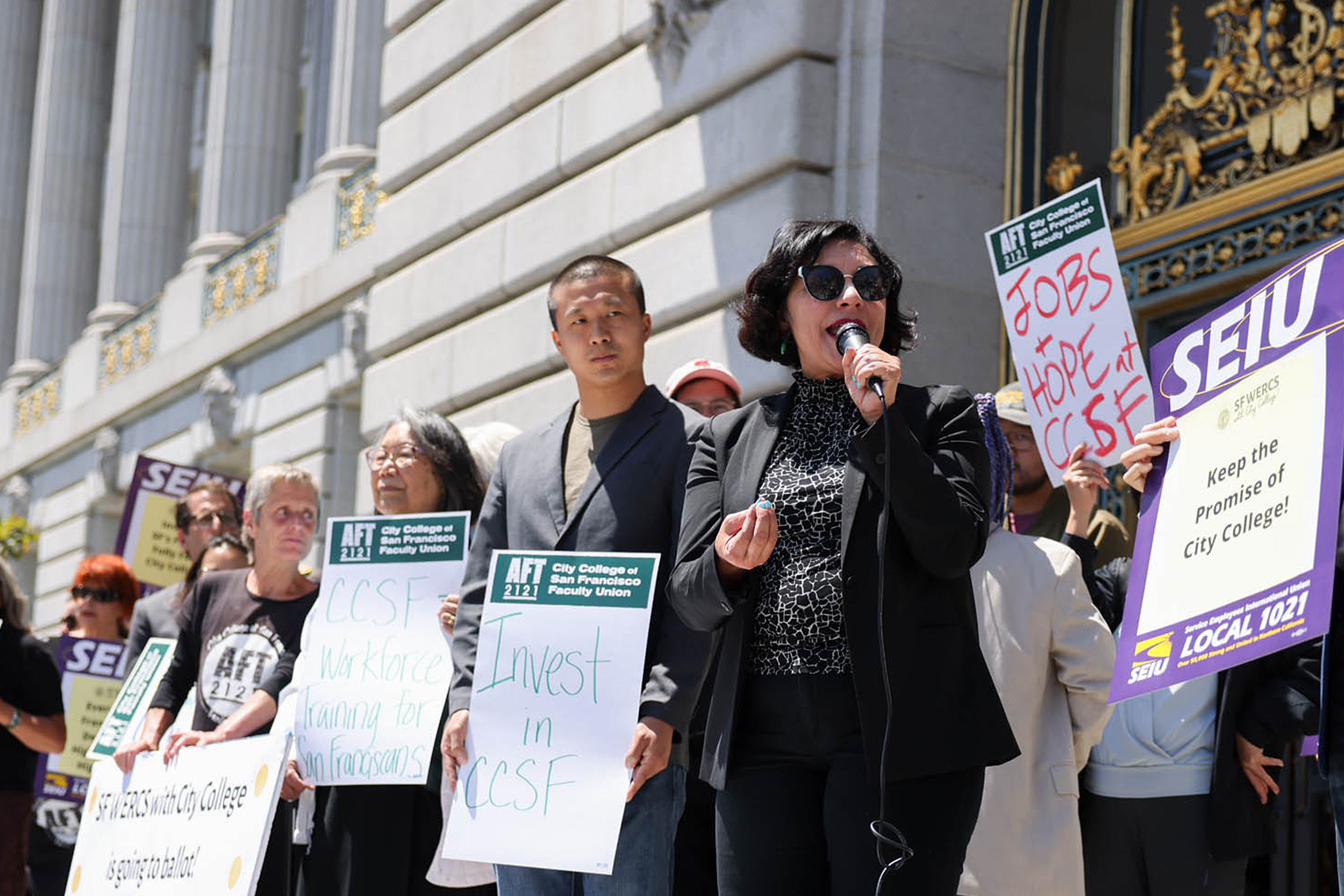The San Francisco Board of Supervisors is taking much of this short week off, with no general meeting and many committee meetings canceled. However, other committees and commissions are taking up potentially sensitive matters ranging from equity in city contracts to long-troubled Laguna Honda Hospital.
And with a newly elected board president bringing fresh committee assignments soon, this relatively quiet week could be the calm before the storm.
Equity in Contracting
The Government Audit and Oversight Committee meets Thursday to consider a resolution asking the City Administrator’s Office to conduct a disparity study on San Francisco’s Local Business Enterprise (LBE) contracting program.
That program, which offers a leg up in the contracting process to local small businesses, supplanted minority-owned business programs after the passage of Proposition 209 in 1996, which banned affirmative-action contracting.
“With the results of this study, I think that we, the mayor and our city departments will be better equipped to live up to our values and craft public policy that elevates women- minority- and veteran-owned small businesses,” said Supervisor Myrna Melgar when she introduced the resolution on Nov. 29.
A 2015 study by the nonprofit Equal Justice Society found that minority- and women-owned businesses lost about $200 million a year in contracts in San Francisco since passage of Prop. 209.
A 2020 report from the city’s contract monitoring division reported over 1400 participating businesses, 35% of which were minority-owned and 25% were women-owned.
In 2021, San Diego completed a disparity study of its own programs that revealed businesses owned by women and/or minorities received only 19% of city contracts versus 31% demographic representation.
Last July, the San Diego City Council voted unanimously to seek “legally defensible policies” that provide preferences to women- and minority-owned businesses for contracting, despite warnings that they could run afoul of Prop. 209.
“Even though Prop. 209 ties our hands, we can certainly ask the question,” Melgar said.
Laguna Honda Hearing Coming
At the board’s last full meeting on Jan. 10, Melgar requested a hearing on the status of Laguna Honda Hospital now set for Jan. 31. Supervisors approved a settlement with federal agencies that agreed to conditions for the recertification of the troubled facility on Nov. 1.
Laguna Honda was decertified last April by the Centers for Medicare and Medicaid Services (CMS) over what it identified as deficiencies in care, including drug-related contraband and infection-control issues.
The upcoming hearing would be the last update the board receives before CMS decides whether to extend the current suspension on involuntary discharges and transfers of patients on Feb. 2.
Under the settlement, the facility continues to get federal Medicare and Medicaid funding until Nov. 23.
On Tuesday, the Health Commission will also hear a status update on the situation at Laguna Honda—and will likely approve a laundry list of over 80 changes in care policies for the facility.
“As part of the Medicare and Medicaid recertification effort and in close collaboration with regulators, Laguna Honda has reviewed policies and procedures to ensure they meet best practices and current regulations, modifying where necessary,” said the Department of Public Health in a statement.
The health department submitted an action plan to CMS on Jan. 6 that included the proposed changes in care policy.
Final Act of Elections Commission Drama?
Depending on what happens this week, supervisors may finally be able to put the controversy over San Francisco’s Director of Elections to bed.
The Elections Commission meets Wednesday evening, and will likely reverse their much-maligned decision to fire Director of Elections John Arntz. The move had been widely condemned by all political camps in the city.
The decision not to renew Arntz’ contract was ostensibly based on equity concerns, with commissioners saying they wanted to open the job up to more diverse candidates. However, the real reason may have been animus toward Arntz, who has been in the role for 20 years, over certain policy decisions. Moreover, Arntz’ department was found in surveys to be an equity leader in hiring, worker retention and other areas.
Supervisor Aaron Peskin, who has since been elected board president, held a Damocles’ sword over the heads of commissioners by promising to withhold funding for any replacement search. That—and perhaps the widespread backlash over Artnz’s attempted ouster—apparently convinced election commissioners to compromise.
